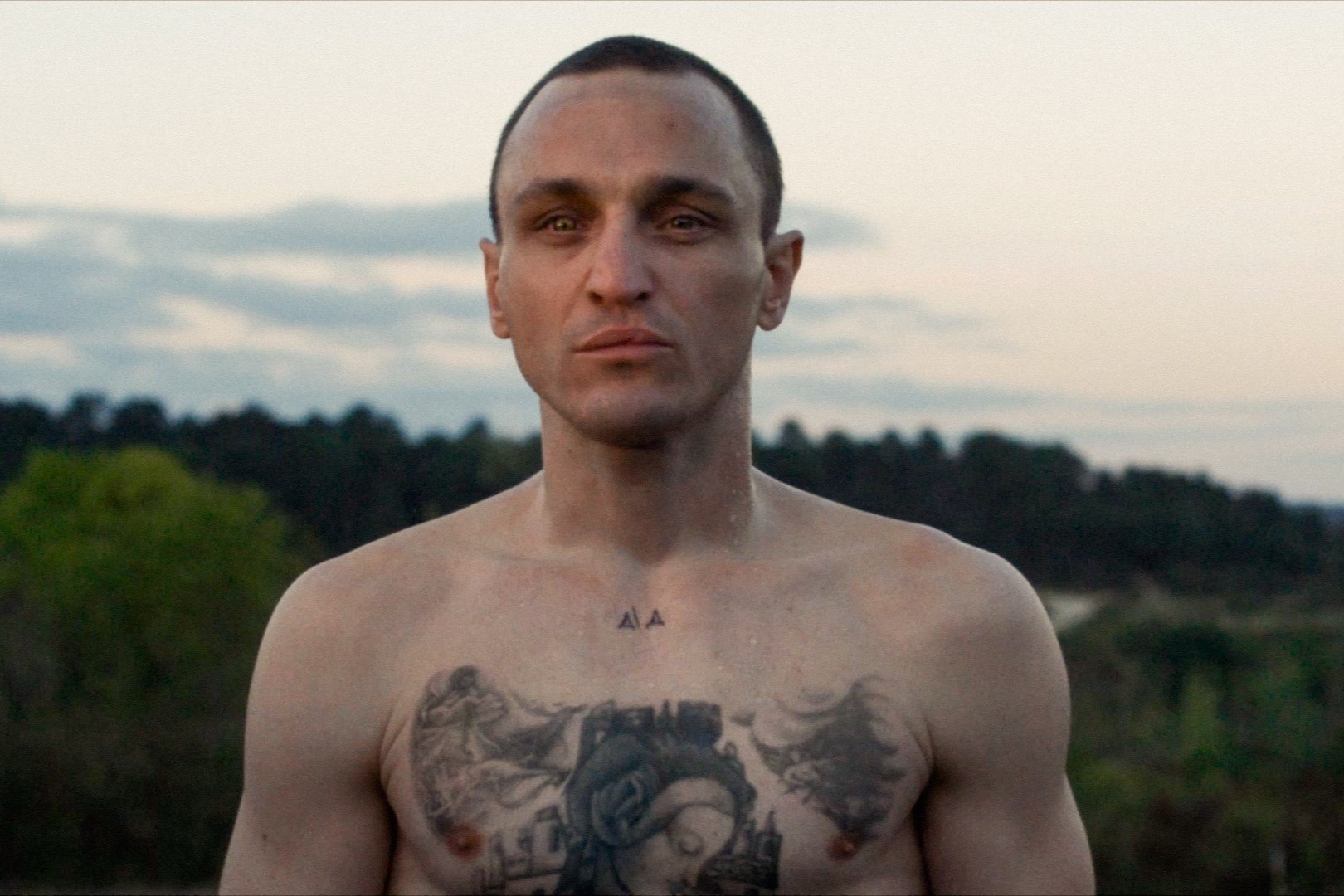Among other ghosts, the spectre of Claire Denis‘ Beau travail haunts Giacomo Abbruzzese‘s intense and enigmatic debut Disco Boy. The lingering tendrils of colonialism bring two disparate men – both seeking freedom in their own way – together and abruptly tear them apart. This strange drama perhaps displays its influences a little too proudly, but Abbruzzese’s storytelling is boldly dreamy and opaque.
Belarussian Aleksei (Franz Rogowski, European cinema’s tortured soul du jour) arrives broken in Paris, having lost his friend and countrymen along the way in a tangle with immigration control. He joins the French Foreign Legion on the understanding that he will gain a French passport after five years of service to his adopted motherland. On a mission to the Niger delta, he’s set in direct opposition to Jomo (Morr Ndiaye), a revolutionary fighting for the emancipation of the region. Jomo and his sister Udoka (Laetitia Ky) are the figureheads of this movement, and each have heterochromia, eyes of differing colours, suggesting a metaphysical bond beyond blood.
Disco Boy is an astonishingly beautiful film. Hélène Louvart‘s cinematography is an alchemical wonder of awe-inspiring landscapes, crepuscular, bacchanalian nightclubs, and extreme, probing closeups. For the centrepiece encounter between Alex and Jomo, Louvart films using thermal imagining, reducing each flailing limbs and snarling face to impressionistic blobs of cold blues, and blazing oranges and reds. It’s all sound-tracked by a deeply hypnotic electronic score by Vitalic.
Like its visuals, Disco Boy‘s story is a slippery, malleable beast. Abbruzzese plays with linearity and logic, indulging in magical realist asides and ghostly encounters. Thematically it works as Alex is forced to reckon with what he’s been forced to do to gain any hint of a foothold of citizenship in a country that would normally dismiss him as an illegal alien. To Jomo, Alex is also part of an invading, imperial force suppressing his own homeland. With the appearance of Udoka in a Parisian nightclub, performing a version of the ritual dance she used to perform to inspire their guerrilla forces, the spirits of the recent past close in on Alex, and he’ll be forever changed.
Choosing dance to express a troubled interiority is perhaps too much of a direct nod to Beau travail to be anything other than a considered decision. Yet it’s difficult to see how reminding the viewer of another, legitimate masterpiece works in Abbruzzese’s favour. The supernatural elements are also a touch on the obtuse side, and the depiction of the shamanic dancing and outlandish appearances of Jomo and Udoka feel troublingly exoticised. They are however, shot to perfection, whether around a campfire in Nigeria or Udoka wearing a dress that resembles an ambulatory mirror ball in a nightclub. Including Rogowski, Disco Boy is simply full of incredible faces. Handled by the brilliant Louvart, the film would be memorable on those terms alone. Yet there’s something almost mythic in the storytelling that feels resonant and set to chime in the viewer’s memory long after the immediate exhilaration of its aesthetic beauty dims.
Screened as part of Glasgow Film Festival 2024


Comments